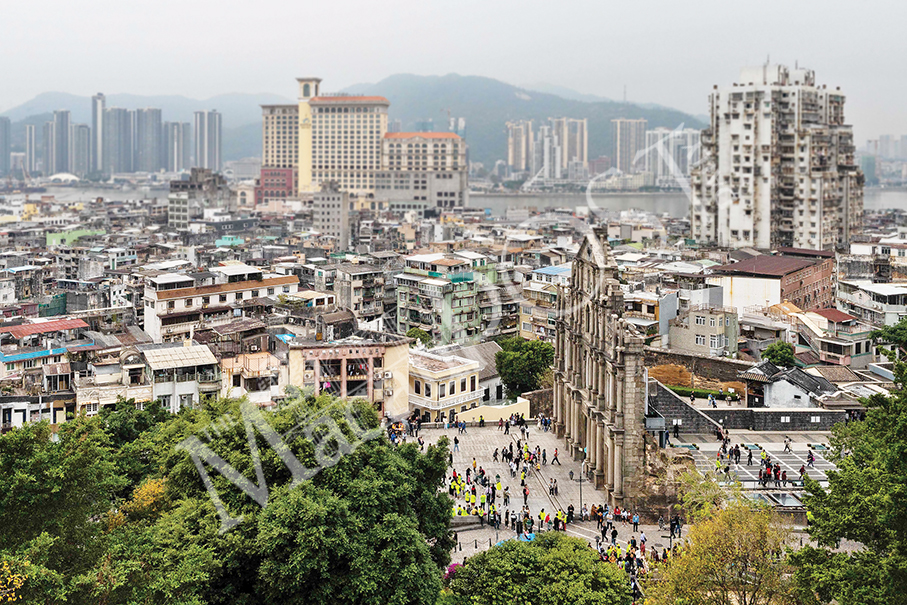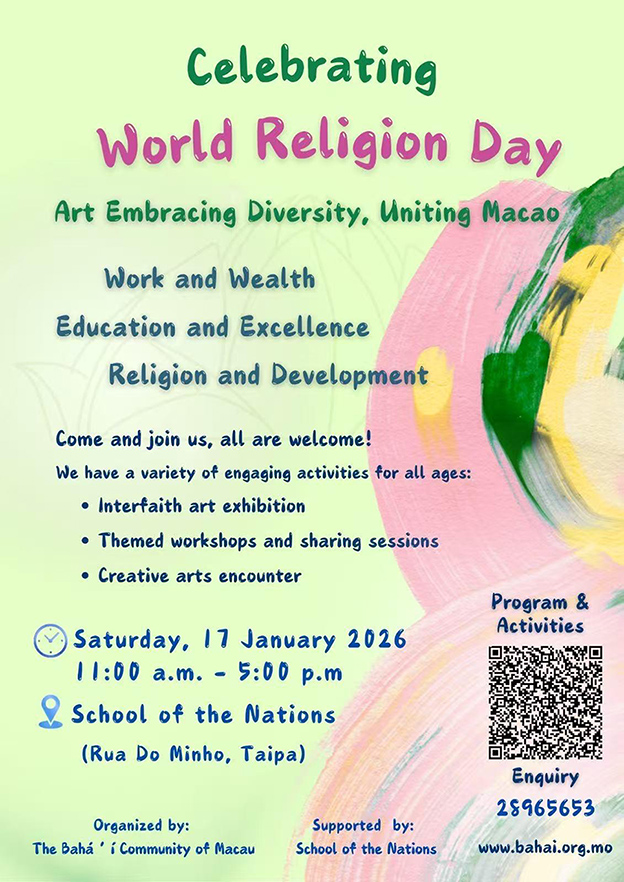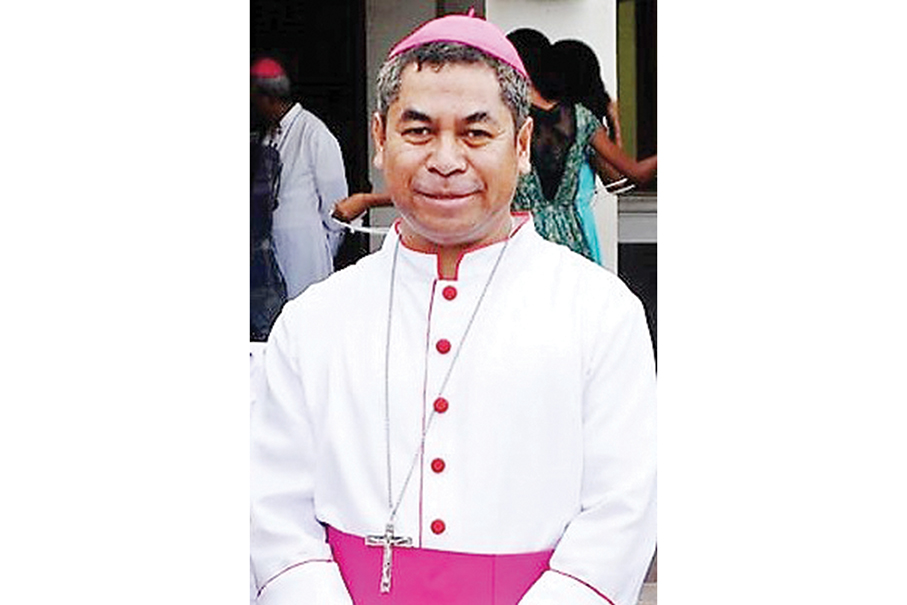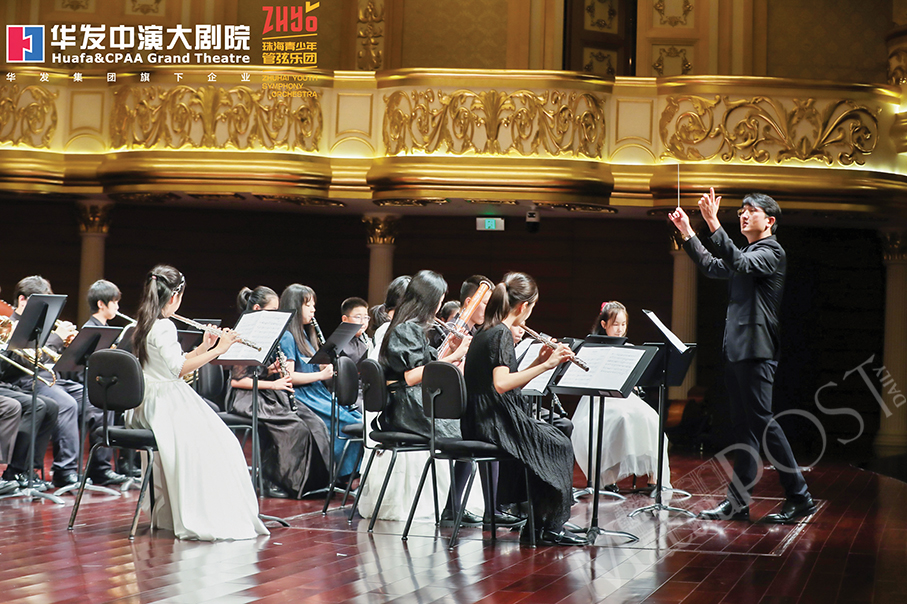Each person living in the city has his or her own story to tell, and as Macau marks its 20th anniversary of its return to the motherland, MPD Weekender spoke to some of the local residents who lived in the city when it was still under the Portuguese rule and also under the local government based on the “One Country, Two Systems” principle, witnessing the changes over the decades.
Reflections
Cindy Lam Im Kuan, manager of a luxury watch shop in the central district, told MPD Weekender early this week near Hotel Lisboa that she had been reflecting on the last 20 years that morning on her drive in to work.
Lam, in her early forties, said, “It is amazing how quickly the 20 years have passed, there have been many different things that have changed, I remember Pan Soi Chi [Largo do Senado, the city’s main square] before it was covered in the decorative stones, a long time before 1999, because I used to walk through the old concrete covered square on my way to school every day.
“The cars used to run through the middle [the square] and my uncle used to set up a table there to help the old people [who were illiterate] to write letters and fill in forms. That just popped into my head this morning,” she added.
“I have been working in the shop for 22 years and in the first three years the customers were very different to the ones that came when the new casinos started opening, business was crazy for 10 years. Many customers came to gamble after [mainland] China opened up and mainlanders could travel more freely and had a lot of money,” Lam said.
She went on to say, “Many new buildings and new shops have gone up and opened, so there have been big changes to local people’s lives, incomes – now they enjoy their lives. For myself I think the feeling now is good. Under the Portuguese [administration] many local residents had no feeling for the Portuguese. The government only hired Portuguese and Macanese, local Chinese were always the third consideration so it was difficult to find a good job.
“Many new immigrants felt under a lot of pressure [as there was little to help them adapt]. In general, the last 20 years are a lot better than before. Although I do have some complaints about the local government, for example the money they give to everyone every year [the wealth share scheme]. It is great for low-income families and it really helps, but I think it is very wrong to give it to those who have already emigrated from Macau, they shouldn’t get it, they don’t live here,” Lam added.
Lost chance?
Frosti Ho Kun Kao, who works in a utility company, told MPD Weekender in Avenida do Ouvidor Arriaga earlier this week that when he left school in 2004 the gaming industry was just opening up and aside from applying to go to university some schoolmates applied for jobs in the casinos as it was a new opportunity.
“Sometimes I feel as if I missed the chance,” said Ho, who is in his 30s. “If I had joined the industry in the beginning what would I be now? Middle management perhaps,” he said rhetorically.
“Before if you wanted to buy Adidas or Uniqlo you had to go to Hong Kong, since the Venetian casino has opened with its huge shopping centre there is no need to go to Hong Kong, everything is so convenient now,” he added.
“Having said that I miss the old days – when I was young – the population was not so high and it was so relaxing and free to walk around Macau, now you need to avoid San Ma Lo (Avenida de Almeida Ribeiro) and Soi Hang Mei (Rua do Campo) sometimes as it is crazy. It is hard to find a peaceful place.
“Sometimes I think the development is too fast, development doesn’t always mean happier. Before the salary was about 3,000 patacas [a month] and a pineapple bun was 1 pataca, but now maybe the salary is 20,000 patacas and a pineapple bun can cost 10 patacas, it is not easy as everything is more expensive,” Ho said.
“I regret not buying a flat,” Ho said wistfully. “In 2004 a flat in Iao Hon was about 100,000 patacas now it is about 4 million [patacas]. It is just too difficult now,” he said.
“Also the people-to-people connection is weak, everyone is in a hurry trying to make more money, even when you buy takeaway food, before it was cooked properly but now it is done using methods that make the process faster – the food is not so good,” he lamented.
“Despite all that, this is my home, I want to stay here and I look forward to the future, although I have to say that the government doesn’t protect Cantonese speakers. Our culture is being murdered,” Ho said.
Living well, eating well
Chong Keng Man remembers Macau when there were small houses, some made of concrete and some of metal sheets.
Chong came to Macau when he was in his teens as a refugee running away from the Japanese troops when they invaded Guangdong in the early 1940s.
He first got a job at a beef market, then moved to work at a beef stall in the Red Market when he was in his late teens.
“After a few years, we [he and his wife] worked at a chicken stall there. The boss got in debt and ran away, so we took over the business,” he said. Chong had been selling live chickens in the Red Market until the government banned live poultry imports permanently two years ago over bird flu virus fears.
The 91-year-old, who has five great grandchildren, said life was hard at first when he and his wife worked day and night to put food on the table for their four children.
“Being able to have salted fish and some vegetables was a blessing. Now we have everything, eat what we like, and everyone becomes a picky eater,” he said, adding: “Now we’re living well, eating well, clothed well. Life is good, stable and happy.”
He only has good words for the local administration over the past 20 years.
“The government gives us money, enough for food and for living. I’m very satisfied,” he said, recalling how different it was when Macau was under Portuguese administration.
“I remember going to Nam Van to pay the bills, the officials shouted at me,” he said, “Now people [at the government] are more polite. I don’t know what other people think, but I’m satisfied [with the local government].”
But there is one thing that he knows clearly that he doesn’t want – having to move to Hengqin to live in a nursing home for the elderly when the time comes.
It was announced earlier this year by the Hengqin Administrative Committee that a “Macau New Neighbourhood” project is planned in Hengqin New Area to offer Macau people facilities such as education and medical and social insurance as well as a nursing home for senior citizens.
“Of course, I want to stay in Macau, I’m used to being here,” he said, “Hengqin is too far away. Young people need to work and they don’t have time to travel all the way there [to visit me].”
Great economy means more opportunities
IT professional Harris Leong Chi Wai told MPD Weekender near Avenida do Ouvidor Arriaga early this week that the last 20 years have been great.
Leong, who is in his late forties, said that “the economy is growing, we can have so many things that we couldn’t have before. With the economy booming it brings so many more opportunities and we have more money to spend. We can travel more than before and see more things. All because of the economy.”
Despite working for a major American IT company, Leong said that “the speed of the growth in technology is perhaps not a good thing, as nowadays the children spend too much time on their mobile phones, playing computer games… they are not spending enough time outside doing sport or even reading.”
“I also think Cantonese is being eroded and not enough is being done to protect it”, he added.
International city?
Born and raised in Macau, Criselle Aleri, whose parents were one of the first Filipinos to arrive in Macau in the early 1970s, told MPD Weekender yesterday that she doesn’t recall being properly taught at school about “this great moment in the history of Macau”, the year when the city reverted from Portuguese back to Chinese rule.
But what the 35-year-old remembers of the Macau when she was a kid was that a lot of the sky could be seen because there weren’t as many high-rises as now, rent and snacks were cheaper, there were more outdoor areas to play and hang out, and people were “less lazy” then because walking was the most popular mode of getting anywhere, and Taipa didn’t seem “too far” away back then when there was only one bridge connecting the peninsula and the island.
Aleri, who now works as an event planner, teaches English and is fluent in Cantonese, finds the city very safe, praising the government for the relatively low crime rate, hardly any homeless people or beggars on the streets, and helping low-income families with public housing, though it’s not easy to get approved for a subsidised home-ownership flat.
However, she pointed out that the government is pushing too hard for the city to be an “international” one, when in reality there is not enough infrastructure or the necessary resources to handle the huge amount of tourists.
“How they strive to provide international standards, but service is still lacking in a lot of places for example certain hotels, and general services such as banking, internet and things like that,” Aleri said, pointing out that high housing prices and a shortage of parking spaces are some of the livelihood issues that the government needs to sort out.
One of the biggest changes she has see over the past years is the job sector, now flooded with employment opportunities, but to get a well paid job, being able to speak Cantonese, Putonghua and English is a major criteria, and knowing Putonghua would 99 percent guarantee a job in the hospitality sector because hotels tend to cater for mainland Chinese visitors more.
“They neglect the other percentage of tourists that visit Macau who are English speakers,” Aleri said, “These English-speaking tourists, sadly, usually encounter communication issues due to the lack of English-speaking workers in the service industry, so they do not get to experience the ‘international service standards’ that Macau claims itself to have.”
With the new government now, Aleri said she hoped to see improvements in education and road safety – “because there are so many careless drivers, they don’t stop at zebra crossings”, and she also hopes that the government will facilitate the hiring of non-resident workers by small- and medium-sized enterprises (SMEs),
“Let’s face it, not a lot of locals would want to work for an SME, unless they own it, or they get paid a ridiculous amount of money similar to a casino or hotel rate,” Aleri said, “A lot of SMEs are suffering because they are unable to hire locals, and therefore look for imported workers. […] I hope the government would be more ‘friendly’ towards foreigners who want to work here, because despite what some people say or complain about, we need help from these other countries to keep Macau running. Locals alone simply cannot keep up with the growth of Macau, and companies having to ‘justify’ the hiring of imported workers is just ridiculous.”

This general view shows a district of Macau on Saturday. – AFP









